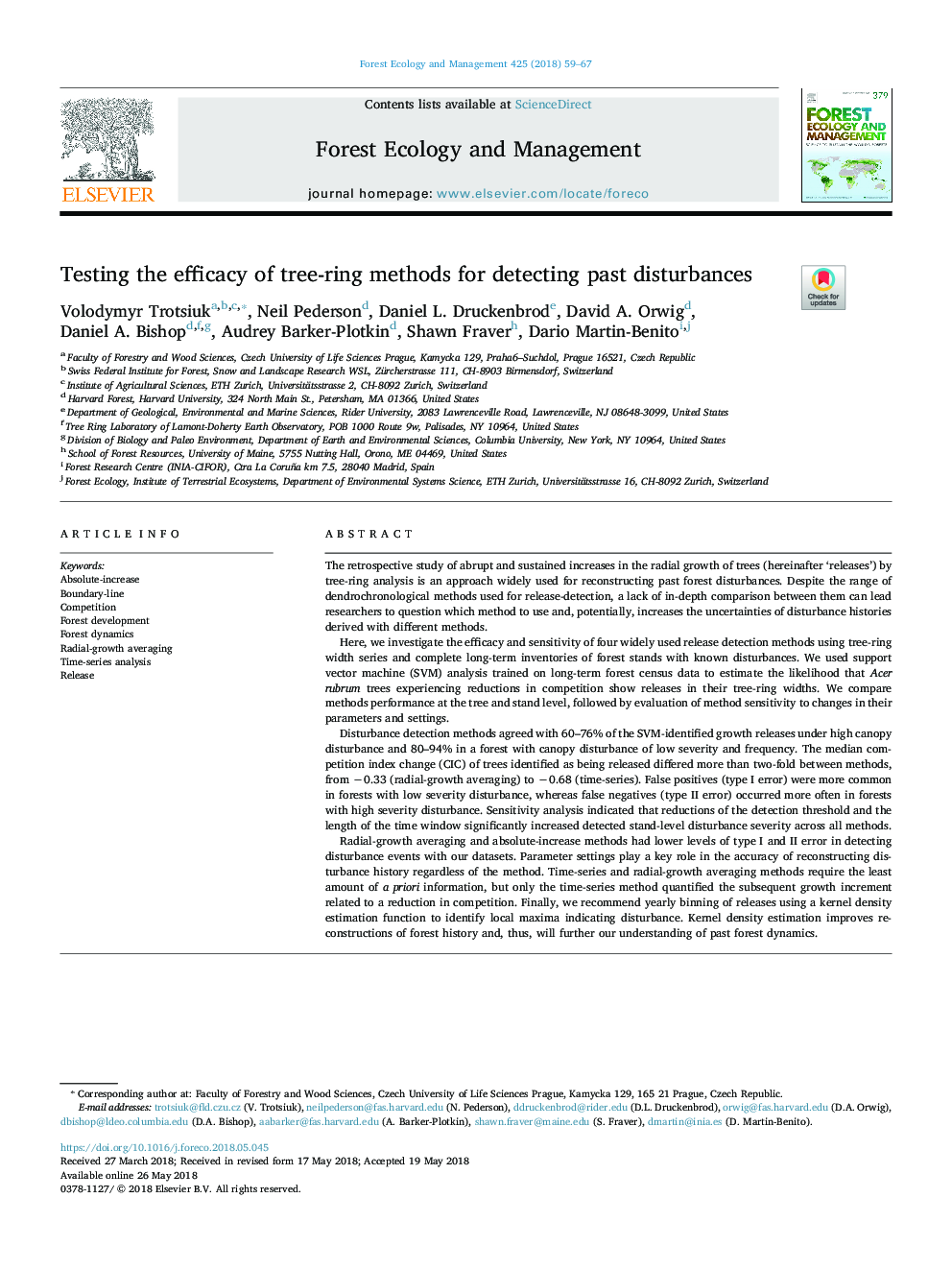| Article ID | Journal | Published Year | Pages | File Type |
|---|---|---|---|---|
| 6541562 | Forest Ecology and Management | 2018 | 9 Pages |
Abstract
Radial-growth averaging and absolute-increase methods had lower levels of type I and II error in detecting disturbance events with our datasets. Parameter settings play a key role in the accuracy of reconstructing disturbance history regardless of the method. Time-series and radial-growth averaging methods require the least amount of a priori information, but only the time-series method quantified the subsequent growth increment related to a reduction in competition. Finally, we recommend yearly binning of releases using a kernel density estimation function to identify local maxima indicating disturbance. Kernel density estimation improves reconstructions of forest history and, thus, will further our understanding of past forest dynamics.
Related Topics
Life Sciences
Agricultural and Biological Sciences
Ecology, Evolution, Behavior and Systematics
Authors
Volodymyr Trotsiuk, Neil Pederson, Daniel L. Druckenbrod, David A. Orwig, Daniel A. Bishop, Audrey Barker-Plotkin, Shawn Fraver, Dario Martin-Benito,
